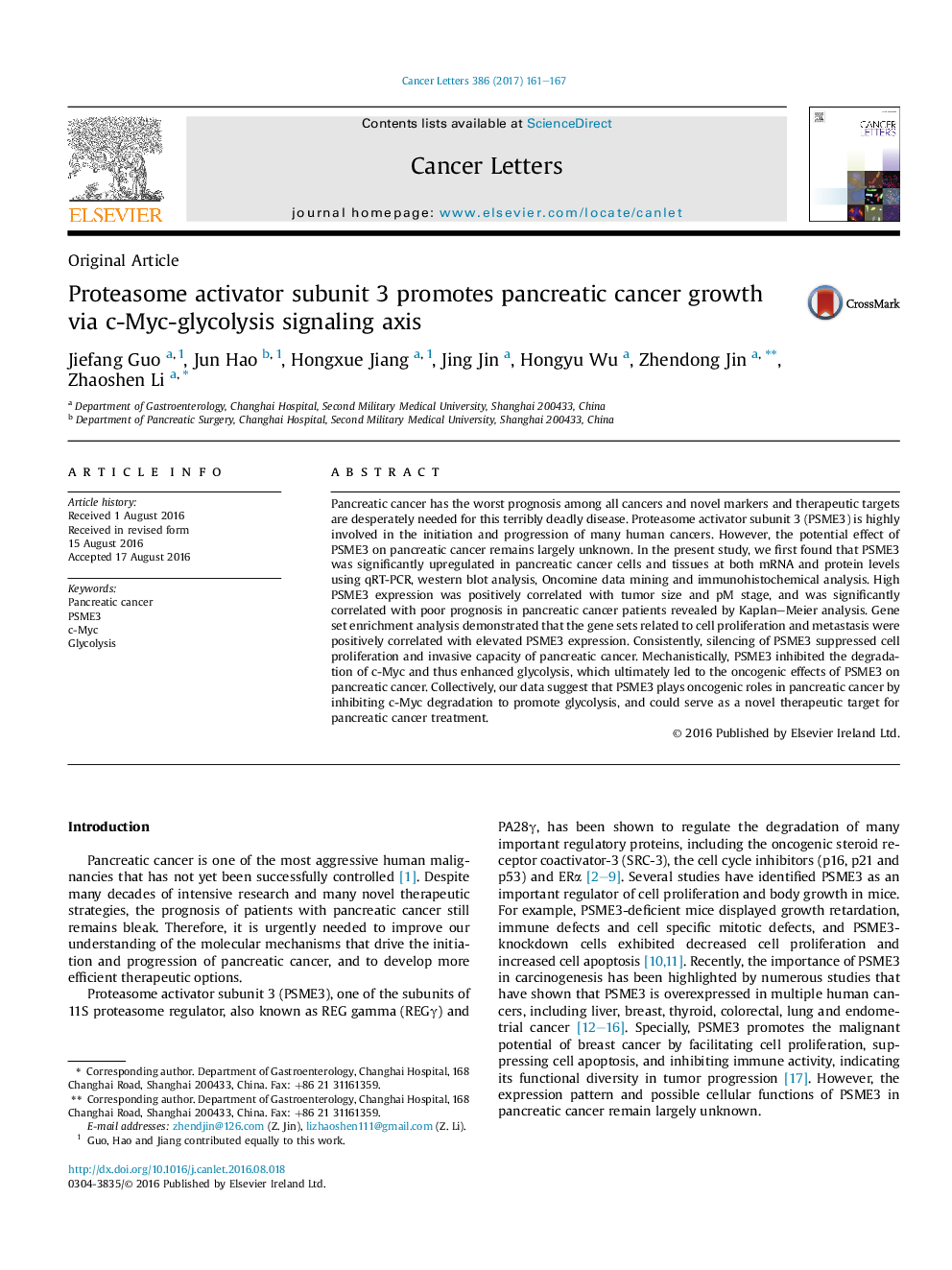| Article ID | Journal | Published Year | Pages | File Type |
|---|---|---|---|---|
| 5525557 | Cancer Letters | 2017 | 7 Pages |
â¢PSME3 is upregulated in pancreatic cancer cells and tissues.â¢Upregulation of PSME3 predicts poor prognosis in pancreatic cancer.â¢PSME3 promotes cell proliferation and invasion of pancreatic cancer.â¢PSME3 exerts it oncogenic roles by inhibiting c-Myc degradation and thus promoting glycolysis.
Pancreatic cancer has the worst prognosis among all cancers and novel markers and therapeutic targets are desperately needed for this terribly deadly disease. Proteasome activator subunit 3 (PSME3) is highly involved in the initiation and progression of many human cancers. However, the potential effect of PSME3 on pancreatic cancer remains largely unknown. In the present study, we first found that PSME3 was significantly upregulated in pancreatic cancer cells and tissues at both mRNA and protein levels using qRT-PCR, western blot analysis, Oncomine data mining and immunohistochemical analysis. High PSME3 expression was positively correlated with tumor size and pM stage, and was significantly correlated with poor prognosis in pancreatic cancer patients revealed by Kaplan-Meier analysis. Gene set enrichment analysis demonstrated that the gene sets related to cell proliferation and metastasis were positively correlated with elevated PSME3 expression. Consistently, silencing of PSME3 suppressed cell proliferation and invasive capacity of pancreatic cancer. Mechanistically, PSME3 inhibited the degradation of c-Myc and thus enhanced glycolysis, which ultimately led to the oncogenic effects of PSME3 on pancreatic cancer. Collectively, our data suggest that PSME3 plays oncogenic roles in pancreatic cancer by inhibiting c-Myc degradation to promote glycolysis, and could serve as a novel therapeutic target for pancreatic cancer treatment.
